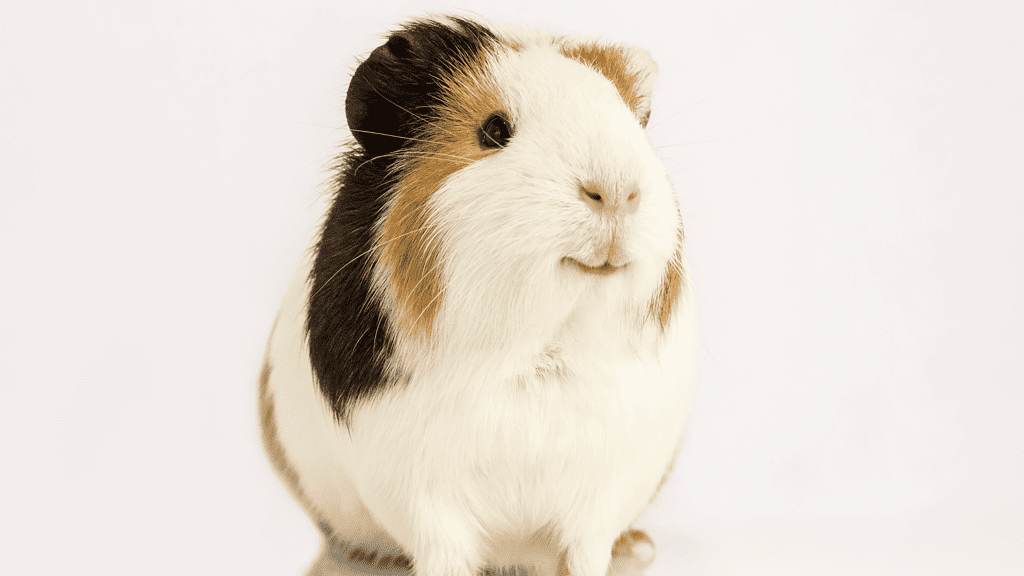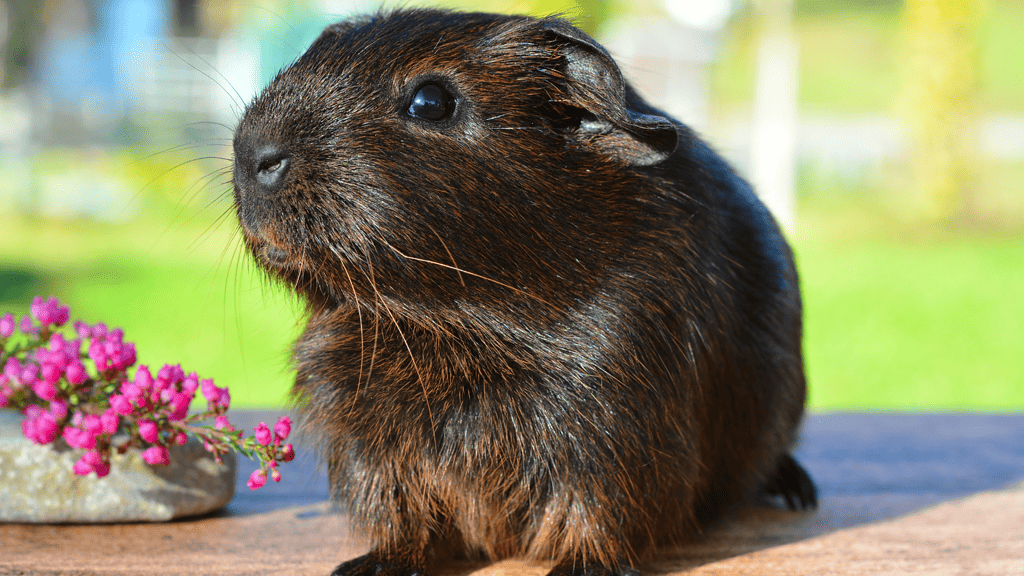Guinea pigs are renowned for having strange toilet habits you’ll usually observe when you look into their box. One of these activities is the amount of waste that they produce; hence, the question is: do guinea pigs pee?

Yes, guinea pigs do pee a lot. They can occasionally pee up to five times an hour, adding up as the day progresses.
Do Guinea Pigs Pee A Lot?
When it comes to guinea pigs, it is a known fact that they pee rather frequently, and they do so throughout most of the 24 hours. They usually can’t contain their pee, so they go to pee when needed.
So, this may seem strange to us as owners, but for them, they typically just go almost as soon as they feel the urge to pee. In the same way, some guinea pigs can urinate in a variety of locations around their box for the same reason.
How Often Can Guinea Pigs Pee?
Guinea pigs need to pee around once every 10-20 minutes. That will not be the same for everyone since it will depend on their age, the weather, and how much water they drink.
Guinea pigs can stop peeing when sick or under a lot of stress. Therefore, the owner is responsible for monitoring the guinea pig to determine whether or not the pet pees regularly. It is easy to look at the color of the urine to see if something is wrong.
What are Different Colours of Pee to Look Out For?
You must closely check the colour and consistency of the guinea pig’s pee since it is an excellent sign of the guinea pig’s health. There are four different kinds of urine, which are as follows:
1. Yellowish Urine
This is completely natural and good for you. It may occasionally have a milky appearance; however, this is mostly caused by an accumulation of very minute quantities of calcium.
2. White and Powdery
An excessive calcium intake will show itself as white urine dries into a powdery consistency. If you see this, you should change what your guinea pigs eat, as excessive calcium can cause bladder stones and urinary tract infections.
3. Orange-Brown When Dried
This does not pose a significant threat to the animal’s health and is really rather typical in young guinea pigs. However, for the sake of safety, you should ensure that your guinea pig is consuming a well-rounded diet.
4. Pink to Dark Pink
Again, this is usually normal and is often caused by eating too many beets, tomatoes, bananas, or carrots. Check to determine whether your guinea pig is consuming an excessive amount of fruits and vegetables and if so, make adjustments to their diet. After that, observe any changes in the colour of their urine.
5. Red to Dark Red
This is a dangerous condition, and you should make an appointment with a veterinarian very soon. Red pee that dries dark brown may indicate blood in the urine and a severe illness or stones.
Guinea Pig Pee Problems
The following activities might be considered problematic:
1. Pee Contamination Is Concerning
It is possible that guinea pig pee contains a lot of calcium; thus, hazy or white pee is considered acceptable. On the other hand, if the urine is slimy or has granular calcium deposits, this may indicate a problem.
2. Urine Excess or Deficiency
Your guinea pig has either made much less urine than usual or much more urine than usual, even though it has had the same amount of water. Because guinea pigs consume more water when the temperature is high, it is natural for them to have an increased volume of pee during this time.
3. Noise During Urination
It sounds like your guinea pig is wailing or screaming out because it has to pee.
4. Struggling to Urinate
A little pee mark or trickle can sometimes indicate a urinary tract infection.
What Is the Reason for Guinea Pigs Peeing on People?
Several of the following are examples of reasons why the guinea pig pee on people:
- Dominance
- Full Bladder
- Nervousness
- Displeasure
Dominance
Male guinea pigs often urinate to assert their authority or mark their territory. We can limit its effects but not eliminate them; it’s a natural part of growing up.
Full Bladder
Guinea pigs can only retain their urine for around 15 minutes. Cut the playtime down to between 5 and 10 minutes. Even better, check to see if your guinea pig has urinated recently, and then you may both play or snuggle together on the couch.
Nervousness
Guinea pigs are curious about their owners and try to figure out where they fit in the household. Going from a safe enclosure or personal space to a big home might be scary. Nervousness can make the bladder empty, along with occasional poop.
Displeasure
An irritated guinea pig might pee. It might be inconvenient to be left alone for a lengthy period or to experience prolonged isolation.

Do Guinea Pigs Pee On Each Other?
A guinea pig may urinate on another guinea pig to convey the message that the two animals should maintain their distance from one another. Guinea pigs will sometimes develop hierarchies among themselves or mark their territory. This behavior is typically seen more frequently in male guinea pigs.
A guinea pig may or may not urinate on another guinea pig; there is no certainty. Peeing on a female guinea pig is another way for males to signal to other males and females that they have found their mate.
The behavior of one guinea pig repeatedly peeing on another must be prevented by removing the offending guinea pig from the cage and providing the offender with a much-needed time-out.
Is It Common for Guinea Pigs to Pee So Much?
If your guinea pig pees a lot, you may wonder if that’s normal. When they consume regular or excessive water, guinea pigs pee a lot. Several factors can affect how much urine a guinea pig will produce, but the two most important are their diet and the amount of physical activity they get. For instance, if your guinea pigs consume a diet rich in high-water-content fruits and vegetables, they will likely urinate more frequently.
So it is usual for guinea pigs to have a lot of urination, but one of the things that you need to watch out for is whether or not the guinea pig’s urine is clean. However, if the urine produced by your guinea pig seems to indicate that it is not in good condition, then it is in your best interest to take them to the veterinarian in your area.
How to Improve a Guinea Pig’s Urinary Health?
The following are some suggestions that might help improve the urinary condition of your guinea pigs:
1. Treat Any Pain
If your guinea pig suffers from arthritis, muscle relaxants may make it easier for them to walk about. This ensures that your guinea pig will maintain a clean and healthy environment.
2. Cleanliness
Every day, you should disinfect and clean the litter pan, as well as the water dish and enclosure for your guinea pig. Cleaning the litter box and the water bowl regularly is recommended. This will reduce the amount of microorganisms found within the cage. It is far more probable that a guinea pig will empty their bladder if the enclosure in which they live is maintained clean.
3. Feed Infinite Grass Hay
The hay varieties best suited for guinea pigs are orchard and timothy.
4. Reduce Stress
Your guinea pig will be able to empty their bladder as a result of this when they urinate.
5. Hydrate
The importance of staying hydrated cannot be stressed enough. Inflammation and infection of the urinary tract can be brought on by dehydration.
6. Regular Exercise
If your guinea pig gets regular exercise, this can help to reduce the risk of urinary tract infections (UTIs) as well as other ailments.
